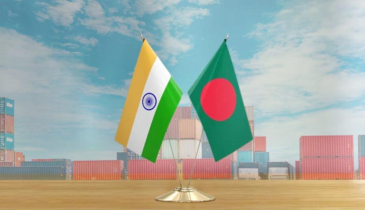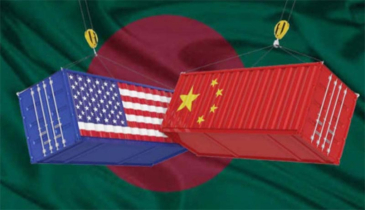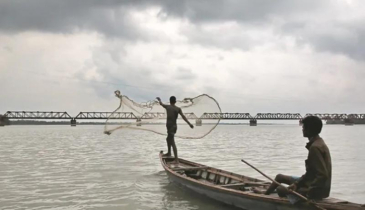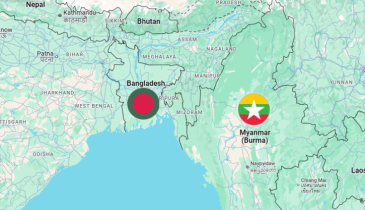Will a Teesta treaty help improve India-Bangladesh ties?
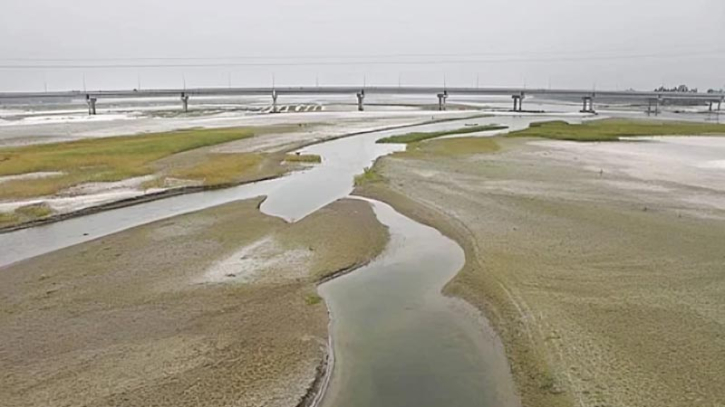
In the aftermath of Sheikh Hasina's ouster from power, the relationship between neighbours Bangladesh and India seems to have gone cold. The former prime minister was considered pro-India, and many believe she gave India undue privileges to cement her hold on power. So, the anti-Hasina sentiment has rubbed off on India so much so that anti-India slogans were heard during the July Uprising.
And India hosting the ousted prime minister and Indian media running a misinformation campaign about communal violence in Bangladesh have not helped things.
However, top leadership from both countries has expressed interest in working together and bettering ties. Foreign advisor Touhid Hossain went as far as to say that public discontent may be alleviated by making appropriate efforts to further improve bilateral relations.
Now the question is: Which action should Delhi take first to thaw the relationship with Dhaka? Several issues are on the list, ranging from border killings and the Teesta water to growing security concerns in the CHT border area.
I believe that Bangladesh's long-standing demand for a fair share of Teesta River water should come first.
Despite the development of trade, economic, cultural, and political relations, both countries have still failed to resolve this pressing bilateral issue. Bangladesh, being a lower-riparian country, is inherently susceptible to transboundary river issues. However, it is unfortunate that although sharing 54 rivers, the Indo-Bangladesh Joint Rivers Commission (JRC) has failed to bring progress in the water management of any significant common rivers, particularly Teesta.
It is also regrettable that even if Bangladesh-India relations are often described as warm and cordial, none of India's actions on rivers as an upstream country demonstrates that it is serious about Bangladesh's concern. A long-term solution to the Teesta issue would not only alleviate the water issue but would also serve to build trust, confidence, peace, and amity between the people of the two countries.
Why Teesta is the number one priority for Bangladesh
The Teesta Water Sharing Treaty is critical for the lives and livelihood of around 2 crore people in Bangladesh's northern region, as well as the environment and biodiversity there. It is the primary source of water for the cultivation of boro rice, Bangladesh's largest crop, and irrigates about 14% of the total cropland of the country. The main problem in the Teesta River is India's unilateral withdrawal of water, especially during the dry season.
Moreover, various infrastructures, including dams, barrages, and hydropower projects, have been constructed in West Bengal and Sikkim, upstream of the River in India, greatly reducing the water availability in the downstream Bangladesh part. As a result, water shortages are affecting the agriculture of 8–10 districts of Bangladesh's northern region, which is known as one of the granaries of the country.
According to a study by the International Food Policy Research Institute (IFPRI), Bangladesh annually loses about 1.5 million metric tonnes of Boro rice, or 8.9% of its total rice production, due to water shortages in the Teesta barrage area, with projected declines of 8% by 2030 and 14% by 2050 due to reduced river flow. Moreover, the sudden release of monsoon water by India has been flooding the Bangladesh part, causing immense damage to human lives and property.
The United Nations International Watercourses Convention stipulates that an upstream country must consult with the downstream country before building infrastructure on shared rivers. It is necessary for an upstream country to make up for any harm done to a downstream country when it builds infrastructure. India, however, does not feel the need to discuss with Bangladesh, let alone compensation. It is against the neighbourly spirit between the two countries as well as international norms that underscore the rights of lower-riparian countries like Bangladesh.
Although Bangladesh has been trying for a long time to reach a deal on the river, India has avoided it, citing a variety of reasons. In 2011, during then-Indian PM Manmohan Singh's visit to Dhaka, a consensus was established between the two countries according to which India would allocate 37.5% of the Teesta waters to Bangladesh, retaining 42.5% for itself during the dry season.
Unfortunately, India did not sign the pact till now, blaming West Bengal Chief Minister Mamata Banerjee's strong objection to the deal, a silly narrative. When the Indian government signed the 30-year Ganges treaty in 1996 with Bangladesh, the West Bengal government opposed the deals at the time too.
Actually, it is not that if Mamata Banerjee objects, the Indian government cannot conclude the Teesta Treaty. According to the Indian constitution, the implementation of any agreement with a foreign state is completely in the jurisdiction of India's central government. West Bengal or no other state can impede this process.
As per the international legal system, it is the right of Bangladesh to get its fair share from Teesta as a lower riparian country. According to Article 5 of the United Nations Convention on the Use of Water Resources, countries that share a flowing common or international river must use, develop, and protect water resources in an equitable and reasonable manner, taking into account all relevant factors and circumstances.
The Indus Water Treaty between India and Pakistan serves as an excellent model for the water distribution and management of common rivers in Bangladesh and India. Since 1960, both countries have been equitably sharing the waters of the Indus and its five rivers without any major dispute. In Europe, 12 Central and Eastern European countries have been using the Danube River for a long time based on mutual responsibility and international norms.
The stalemate in the Teesta water agreement has become a stumbling block in the development of relations between the people of the two friendly countries. A solution to the dispute will help not just Bangladesh economically but also India significantly. The successful implementation of the treaty will send a favourable signal to Bangladesh, allaying the common Bangladeshi's concerns about India's intentions. India will be able to solidify its position as a trusted ally of Bangladesh in the neighbourhood, allowing it to build a robust economic and strategic partnership without concern for the party in power in Bangladesh.
Moreover, a permanent and peaceful solution to the issue can help both countries to take various mutually beneficial projects in the new area of cooperation, such as flood control, environmental protection, power, and energy. Therefore, following the international water-related principles, India and Bangladesh should take urgent steps to implement the Teesta Water Treaty. -Source: tbsnews
.png)


